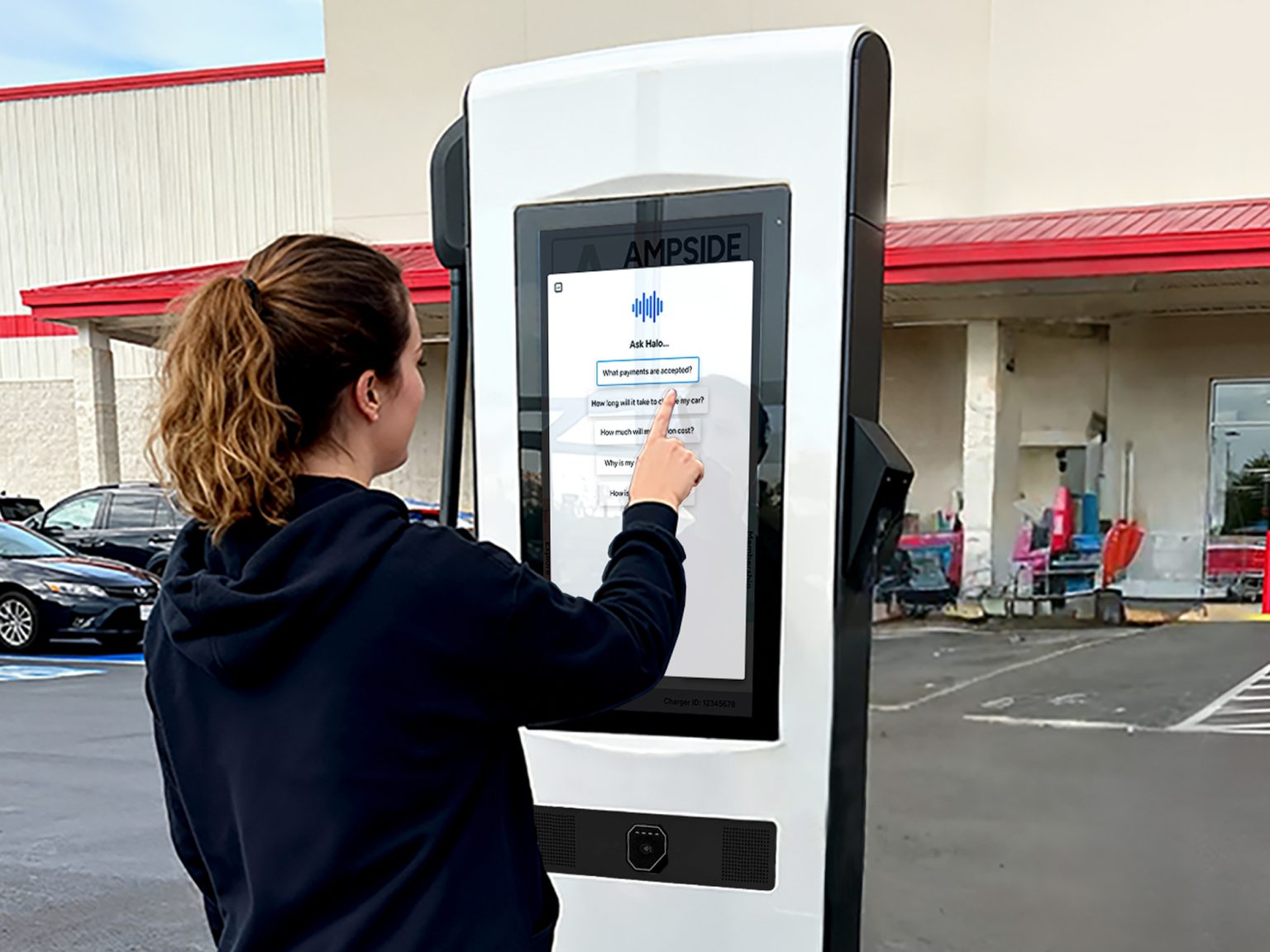Electric Era Launches Interactive AI-Powered EV Chargers to Revolutionize the Charging Experience
In a significant advancement for electric vehicle infrastructure, Seattle-based startup Electric Era unveiled its cutting-edge EV charging system called RetailEdge today. This innovative charging solution goes far beyond simply providing power to vehicles—it creates an interactive experience through artificial intelligence that can actually converse with drivers during their charging sessions. The sleek, modern-looking units can discuss charging status, calculate power needs for reaching destinations, track loyalty points for partnering businesses, and even lighten the mood with jokes. “This is a next generation charging dispenser that does more than just charge cars,” explained Quincy Lee, CEO and co-founder. “It can talk to drivers, it can answer their questions. It can provide them an intelligent and immersive interface while they stop to charge and shop.” This development represents a thoughtful evolution in how we interact with charging infrastructure, making the experience more engaging and informative for EV owners.
What sets Electric Era apart from competitors is their integrated approach to both hardware and software development. The RetailEdge units feature bilingual AI technology that seamlessly connects with business partners’ existing systems and includes built-in payment interfaces. While some industry players opt for off-the-shelf components to reduce costs, Electric Era has taken the opposite approach by developing custom solutions that ultimately deliver greater efficiency. “We are a uniquely capable team of designing very low cost products that have heightened product capabilities,” Lee noted. Since its founding in 2019, the company has distinguished itself by combining DC fast-charging systems with large-scale batteries that help manage the power delivery and storage needed for EV charging. This technological approach has proven successful, with the company serving 72,000 drivers over the past year through 130 charging stalls across approximately twelve states. According to Lee, these numbers are projected to at least double by the end of next year, highlighting the growing demand for innovative charging solutions.
The company’s growth trajectory appears robust, with 40 employees currently on staff and an impressive financial foundation of $20.5 million in equity funding complemented by $8.9 million in debt financing. This substantial backing reflects investor confidence in Electric Era’s vision and technological approach. The timing of the RetailEdge announcement is particularly noteworthy as it coincides with the continued expansion of EV charging infrastructure across the United States, despite certain policy challenges. While Republican leaders have recently eliminated tax credits for electric vehicle purchases, the charging network itself continues to grow at a remarkable pace. Bloomberg’s reporting indicates that public charging stations in the U.S. increased by 19% during the first nine months of this year alone, with 780 high-speed stations added in just the third quarter. This growth demonstrates the resilience of the EV ecosystem even as policy support fluctuates.
The retail and restaurant sectors have emerged as key drivers in expanding charging availability, with these businesses increasingly viewing charging stations as valuable customer attractions. This trend aligns perfectly with Electric Era’s business strategy, which focuses on deploying its chargers at convenience stores and similar commercial locations. The company plans to continue selling its original charging units alongside the new RetailEdge systems, offering customers a range of options to suit their specific needs and budgets. While Lee described the company’s products as “cost competitive,” he refrained from sharing specific pricing details. This approach allows the company flexibility in working with different business partners while maintaining competitive positioning in a rapidly evolving market that includes established players and new entrants alike.
Despite the overall positive trajectory, Electric Era and the broader EV charging industry face real-world challenges, particularly regarding security and infrastructure protection. The company has thus far avoided the charging cable thefts that have become problematic for many charging installations, where thieves target the copper and other valuable metals contained within the cables. Lee attributes this success partly to the company’s tendency to install units in locations with higher levels of activity and employee oversight, providing natural deterrence. However, he acknowledges the ongoing vulnerability as the company expands. This concern is especially relevant for Electric Era’s upcoming Seattle-area installations, which will include 32 new charging ports over approximately the next eight months. The Seattle region has experienced significant problems with thieves targeting not just charging infrastructure but also utility and telecommunications equipment, creating additional security considerations for new deployments.
In response to these security challenges, Electric Era is taking a proactive approach beyond just physical design considerations. Lee mentioned that his team is “constantly lobbying” state legislators to enact laws that provide better protection for essential infrastructure, including EV charging stations. This advocacy work represents an important dimension of the company’s operations that extends beyond technology development to policy engagement. By working on both the technical and regulatory fronts, Electric Era is positioning itself as a comprehensive player in the EV charging ecosystem. As the electric vehicle market continues its growth trajectory despite policy fluctuations, companies like Electric Era that combine technological innovation with practical solutions to real-world challenges are likely to play an increasingly important role in building out the necessary infrastructure. The RetailEdge system, with its blend of charging functionality and interactive capabilities, exemplifies how charging stations are evolving from utilitarian power delivery points to sophisticated service hubs that enhance the overall electric vehicle ownership experience.














